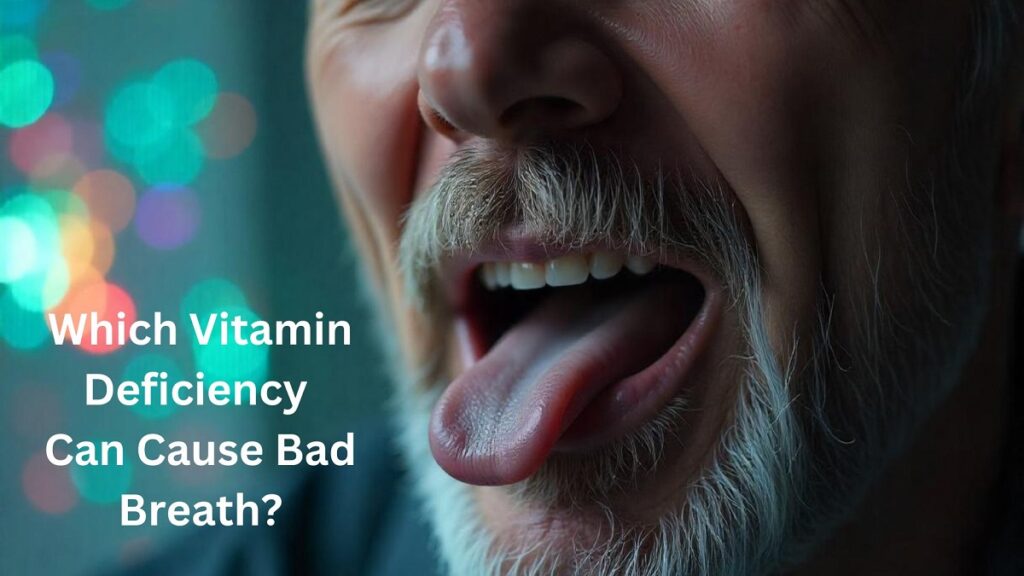Bad breath, also called halitosis, is a common problem that can make you feel uncomfortable in social situations. There are many reasons for bad breath, like not cleaning your teeth properly, eating certain foods, or health issues. But did you know that not getting enough vitamins can also cause bad breath? Let’s look at how vitamin deficiencies can affect your breath and how to fix it.
How Vitamin Deficiencies Cause Bad Breath
Vitamins are important for keeping your body healthy. When your body doesn’t get enough of certain vitamins, it can lead to problems, including bad breath. Here are some vitamins that may be linked to bad breath:
Vitamin B12
Vitamin B12 is important for keeping your body’s blood and nerves healthy. If you don’t have enough B12, it can lead to bad breath.
How It Affects Breath:
- Low B12 levels can cause gum problems like infections or swelling, which can smell bad.
- It can also lead to a dry mouth, which makes it easier for bacteria to grow and cause bad breath.
Foods High in Vitamin B12:
- Meat, fish, and eggs
- Milk, cheese, and other dairy products
- Cereals that have added B12
Vitamin C
Vitamin C helps keep your gums strong and healthy. If you don’t get enough vitamin C, your gums can become weak or infected, which may cause bad breath.
How It Affects Breath:
- A lack of vitamin C can cause bleeding gums and gum infections. These problems often come with a bad smell.
Foods High in Vitamin C:
- Oranges, lemons, and other citrus fruits
- Strawberries, kiwis, and papayas
- Vegetables like broccoli, bell peppers, and spinach
Vitamin D
Vitamin D helps your body keep your teeth and gums strong. It also helps your body use calcium, which is good for oral health. Without enough vitamin D, bacteria in your mouth can grow and cause bad breath.
How It Affects Breath:
- Low vitamin D levels can make gums weak and more likely to get infections, which smell bad.
Foods High in Vitamin D:
- Fatty fish like salmon and tuna
- Egg yolks
- Foods with added vitamin D, like milk and orange juice
Vitamin A
Vitamin A helps keep the soft tissues in your mouth, like your gums, healthy. If you don’t get enough vitamin A, it can lead to dry mouth, which often causes bad breath.
How It Affects Breath:
- Low vitamin A can reduce saliva, which makes it easier for bacteria to grow and cause bad odors.
Foods High in Vitamin A:
- Carrots, sweet potatoes, and pumpkins
- Spinach and kale
- Dairy products and liver
Other Causes of Bad Breath
While vitamin deficiencies can cause bad breath, other reasons may also play a role:
- Poor oral hygiene: Not brushing and flossing regularly allows bacteria to grow in your mouth.
- Dry mouth: Not drinking enough water can reduce saliva, which helps clean your mouth.
- Smoking: Tobacco products leave a bad smell in your mouth.
- Health conditions: Issues like sinus infections, acid reflux, or diabetes can also cause bad breath.
How to Fix Vitamin Deficiency and Bad Breath
If you think a lack of vitamins is causing your bad breath, try these tips:
- Eat a balanced diet: Include a variety of foods rich in vitamins, like fruits, vegetables, lean meats, and whole grains.
- Take supplements: If you can’t get enough vitamins from food, ask your doctor about taking supplements.
- Stay hydrated: Drink plenty of water to prevent dry mouth.
- Brush and floss daily: Clean your teeth twice a day and floss to remove food particles and bacteria.
- Get some sun: Spending time outside can help your body make vitamin D naturally
Conclusion
Bad breath can be frustrating, but understanding the cause can help you solve the problem. A lack of certain vitamins, like B12, C, D, and A, can make your breath smell bad. Eating the right foods, drinking enough water, and keeping your mouth clean can help improve your breath. If the problem doesn’t go away, don’t hesitate to ask a professional for help.

